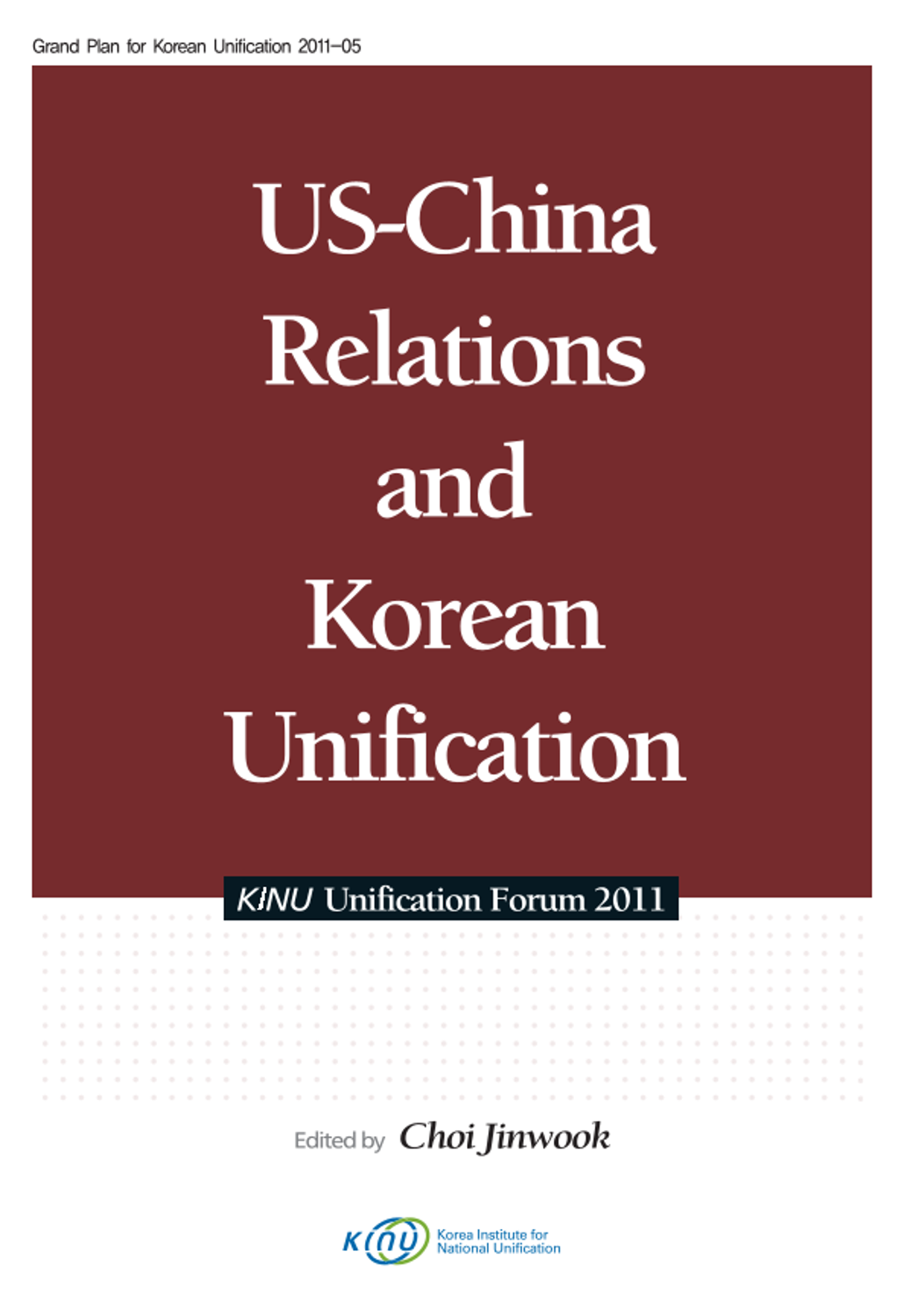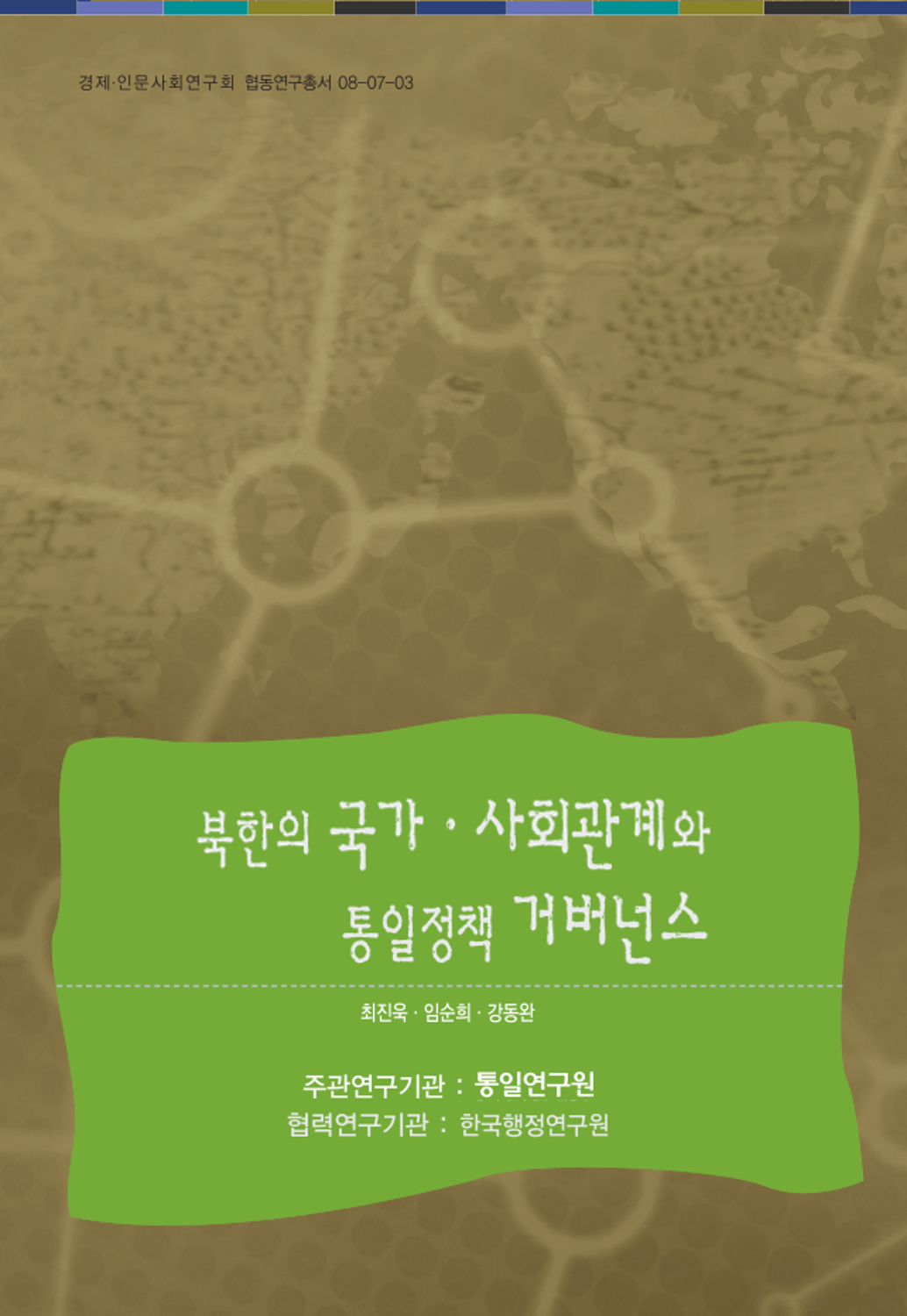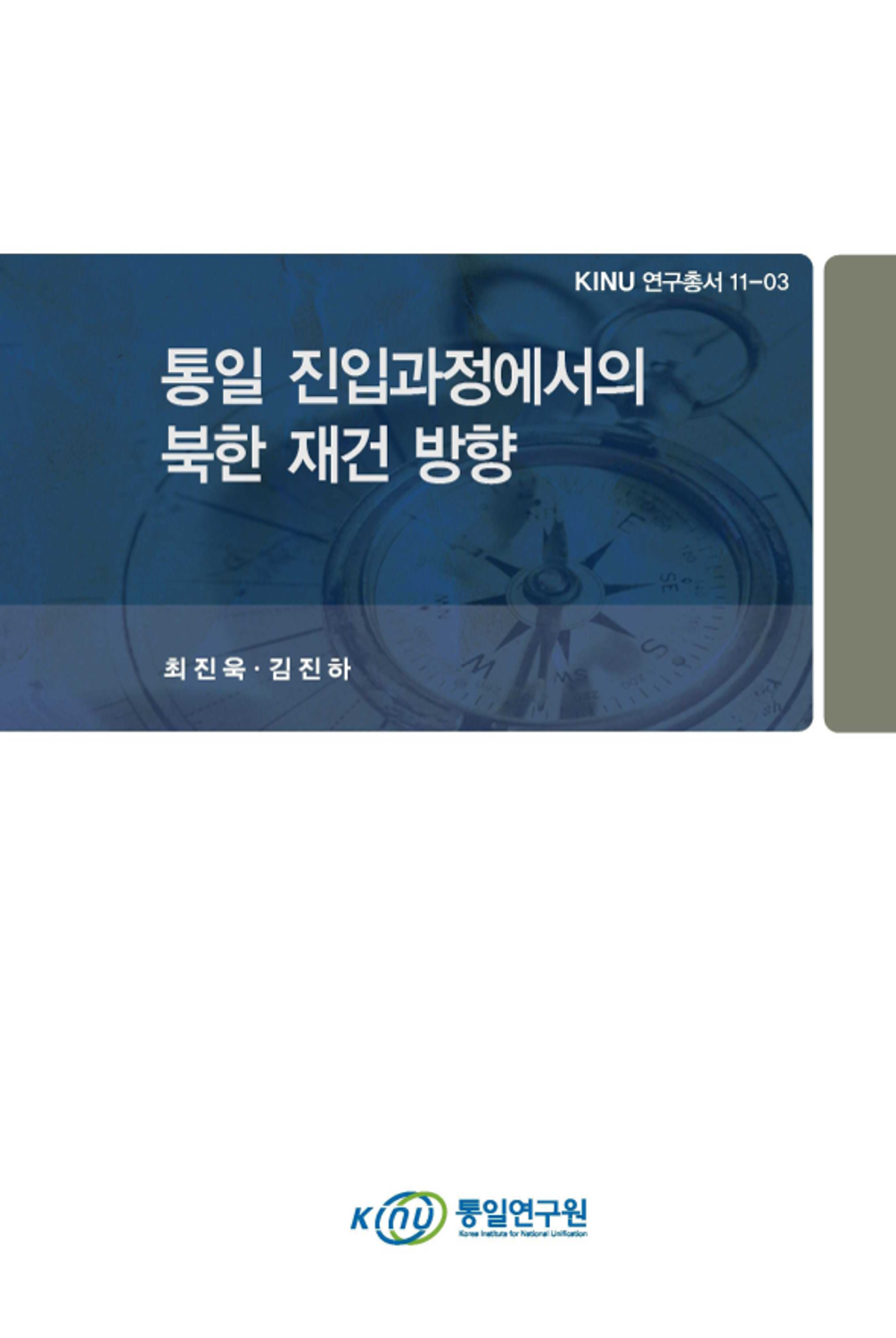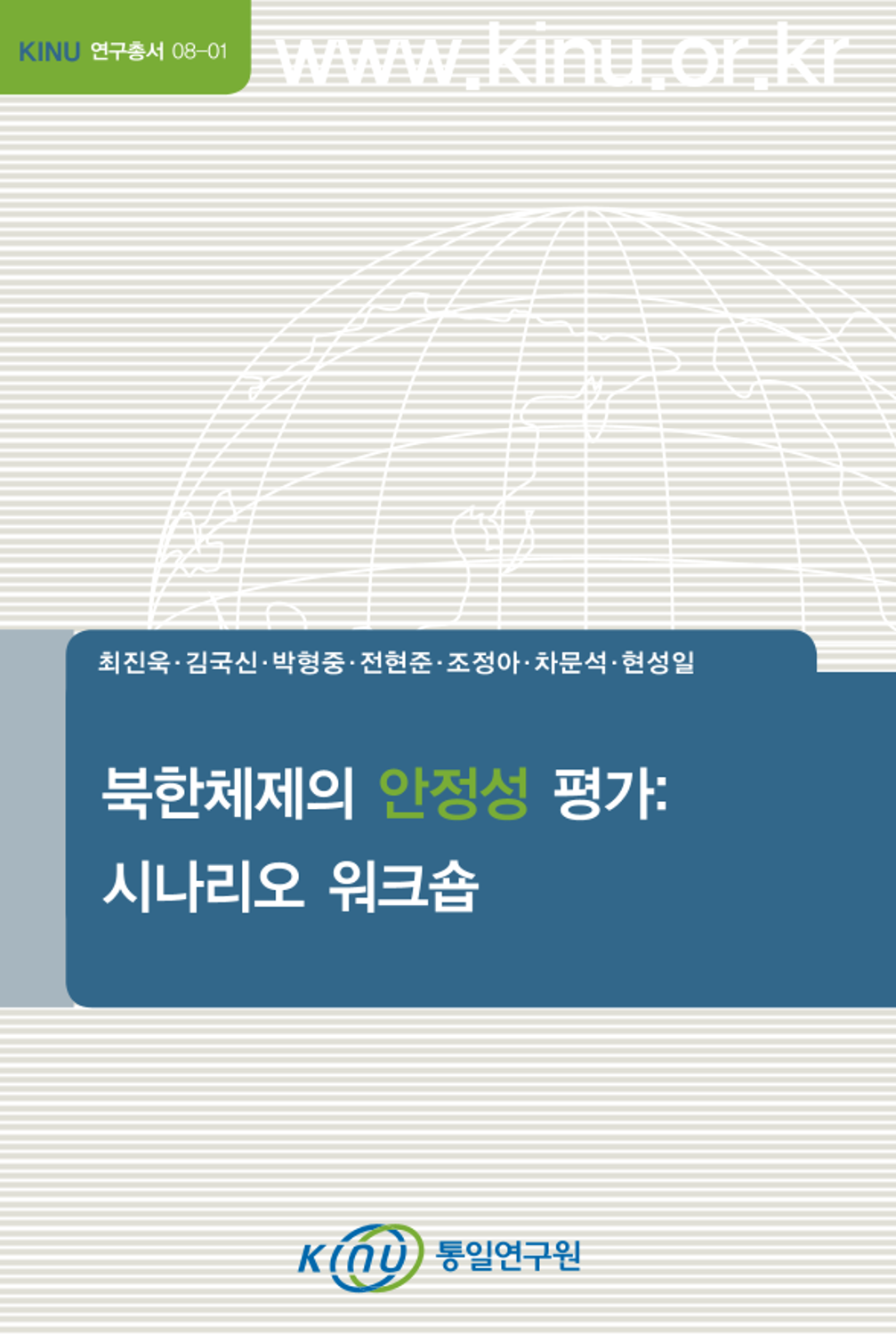
연구원발간물Grand Plan for Korean Unification 2011-05
US-China Relations and Korean Unification: KINU Unification Forum 2011
- 발행사항
- Seoul : Korea Institute for National Unification, 2011
- 형태사항
- 264 p. ; 26 cm
- ISBN
- 9788984796065
- 청구기호
- 000 연구11-05대계
소장정보
| 위치 | 등록번호 | 청구기호 / 출력 | 상태 | 반납예정일 |
|---|---|---|---|---|
이용 가능 (2) | ||||
| 1자료실 | G0013255 | 대출가능 | - | |
| 1자료실 | G0013256 | 대출가능 | - | |
이용 가능 (2)
- 등록번호
- G0013255
- 상태/반납예정일
- 대출가능
- -
- 위치/청구기호(출력)
- 1자료실
- 등록번호
- G0013256
- 상태/반납예정일
- 대출가능
- -
- 위치/청구기호(출력)
- 1자료실
책 소개
The Korea Institute for National Unification (KINU) is working on a four-year project (2010-2013) on the subject of Korean unification. The objective of this project is to propose a grand plan for Korean unification. The Unification Forum series is one of the tasks of this project. Last year the purpose of the forums was to review the positions of neighboring countries on Korean unification. The result of the forums has been compiled into a book titled Korean Unification and the Neighboring Powers (Seoul: Neulpum, 2010).
This year the forums have focused on US-China relations and their implications for Korean unification. These forums are also intended to serve as a channel to deliver our unification vision to the international community. This year’s fifth forum, held on November 16th, was oriented toward diplomats based in Seoul. KINU invited around thirty diplomats from major embassies, most of them deputy chiefs of mission, to share views and visions of Korean unification.
The forum was organized by a planning committee composed of 20 experts on North Korea and international politics. This committee was involved in every aspect of the forum, from selecting speakers and topics for discussion to participating in the discussions and offering policy suggestions.
This book is the result of this year’s forums. It is composed of two general papers as well as five forum papers. The first two papers serve as a sort of introduction. “Building a United Korea: Visions, Scenarios, and Challenges” suggests a four-stage unification process which may be the most desirable and feasible approach for South Korea. “Security Dynamism in Northeast Asia: Emerging Confrontation between USROK- Japan vs. China-Russia-DPRK” is an overview of the changing unification environment. Each forum produced one paper, except for the second forum which produced two papers.
I am indebted to many people for the successful completion of this year’s forums and the publication of this book. First of all, I am deeply grateful to our speakers - Drs. Lowell Dittmer, G. John Ikenberry, David M. Lampton, John S. Park and Fei-ling Wang - for their insightful and stimulating presentations as well as their enthusiastic discussions at the forums. I appreciate Dr. Zhu Feng’s participation as a discussant in the third forum. The speakers’ prompt and professional revisions of their forum transcripts helped ensure the timely publication of this book. I am also grateful to Dr. Sachio Nakato for writing an introductory paper as I suggested. It was my pleasure to work with them throughout the year.
Members of the Forum Planning Committee helped to arrange for prominent scholars to speak at the forum. I am particularly grateful to Drs. Choo Jaewoo and Kim Taehyun for their help. Dr. Lee Eugene continues to be as indispensable an advisor this year as he was last year. The various committee members also helped to make each forum productive and enjoyable through their enthusiastic participation as discussants. I am also grateful to our staff members for their assistance. Lee Kyunghwa’s exceptionally sincere and competent management made the forum administration and publication a pleasant process. Meredith Shaw’s artful English is such an asset to the forum series. She compiled all the forum transcripts based on the presentations and discussions. Kim Ah Young, Lee Hwan-Sun, and Jung Yunmi deserve my special appreciation.
목차
Preface
Contributors
Ⅰ. Korean Unification in an International Context
Building a Unified Korea: Visions, Scenarios, and Challenges/ Choi Jinwook
Security Dynamics in Northeast Asia: Emerging Confrontation between U.S.-ROK-Japan vs. China-Russia-DPRK?/ Sachio Nakato
Ⅱ. The First KINU Unification Forum
Beijing’s “Sunshine Policy with Chinese Characteristics”: Implications for Korean Unification/ John S. Park
Ⅲ. The Second KINU Unification Forum
Uniting Korea: Enduring Dream, Elusive Reality/ Lowell Dittmer
Status Quo Reassessed: China’s Shifting Views on Korean Unification/ Fei-Ling Wang
Ⅳ. The Third KINU Unification Forum
American Grand Strategy toward East Asia and North Korea/ G. John Ikenberry
? Discussant: Zhu Feng
Ⅴ. The Fourth KINU Unification Forum
Beijing, Washington, and the Korean Peninsula/ David M. Lampton
Forum Members







